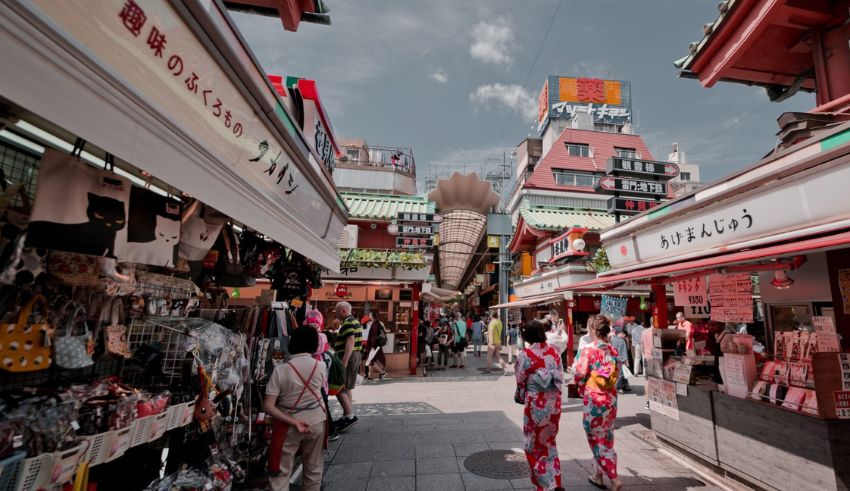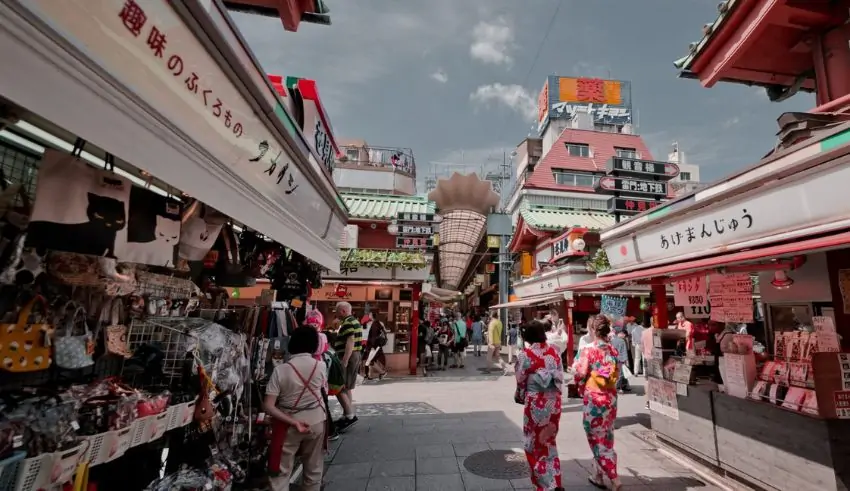

(C) Japan Adventure
For luxury goods, Japan has come to be known as heaven. From luxury technology to renowned fashion companies, the country offers a carefully selected choice of luxury products. Apart from a strong yen, the first-rate service has always attracted wealthy patrons from all around. For many, shopping in Japan is more about the experience itself—meticulous attention to detail, individualized service, and a sense of exclusiveness than it is about the products.
The Tourist from the Tsunami
Driven by factors including lower yen, better access, and growing respect of Japanese culture, Japan has seen a surge in tourism recently. Visitors have come from the rich past of the country, modern attractions, and unique cultural encounters. This flood has suddenly changed the scene of luxury shopping even while it has aided the hotel and service sectors and boosted the general condition of the economy.
The surge of budget-conscious consumers has resulted in congestion at luxury stores, therefore reducing the unique shopping experience that has historically defined the Japanese luxury sector. Once the domain of affluent consumers, high-end stores are today humming with people who might not be the primary target market for these products. From this transition, longer wait times, less customized care, and a general decline in the ambiance that high-spending consumers expect follow. Moreover, the focus on mass travel has distracted attention from affluent consumer base, which challenges premium companies to maintain their attraction and reputation.
Juggling Act: Helping Everyone
Japanese luxury stores have to carefully negotiate their navigation of this new reality. One hand, they have to keep catering their primary clientele of high-spending clients seeking for originality and personalized attention. On the other hand, they have to find strategies to engage with the bigger tourism sector without compromising their brand reputation. This combined approach necessitates innovative ideas and thorough execution to ensure that the needs of both groups are served without sacrificing the luxury experience.
Recommendative repairs
Many approaches can help the luxury industry to match the evolving landscape. Providing tie-red retail experiences with different degrees of service and product selection helps to please casual guests as well as luxury consumers. For high-end consumers, for instance, VIP areas or special shopping events help to maintain the perception of exclusiveness. Another strategy is creating distinctive shopping experiences for high-end clients during less busy times, like after-hours events or special preview days when top consumers could browse in a more leisureful and private environment.
Using internet channels to build relationship with premium customers and provide customized shopping experiences is also absolutely important. Virtual consultations, customized recommendations, and specific online resources can help to maintain a high degree of service even outside the real store. Presenting Japan as a top destination working with tourism boards can also attract high-spending visitors. Here targeted marketing campaigns, agreements with luxury travel agencies, and well chosen travel experiences stressing the best of Japan’s premium products might all play a part.
By carefully evaluating these approaches, Japan’s luxury industry might continue to expand in front of increasing tourists, therefore preserving its worldwide shopping mecca reputation. Preserving the special attractiveness that has made Japanese luxury shopping so well-known will rely on balancing the demand of high-end consumers with the flow of visitors.
China, stepping ahead of possible new US tariffs, has announced new trade plans from India to bring both countries closer…
Early Tuesday morning. The fire, which could be seen from several miles away, caused mass evacuations as the authorities fine-tuned…
OpenAI's new image creation option on ChatGPT attracted many users in a short time. ChatGPT achieved its one million user…
Yuki Tsunoda has targeted a dream podium at his home Japanese Grand Prix following his surprise elevation to Red Bull.…
Finally, it is out! Tom Holland will return to the red and blue suit as Marvel formally launches the title…
Turkish music lovers and the whole entertainment world on Sunday night were put in shock by the unexpected passing of…
This website uses cookies.
Read More